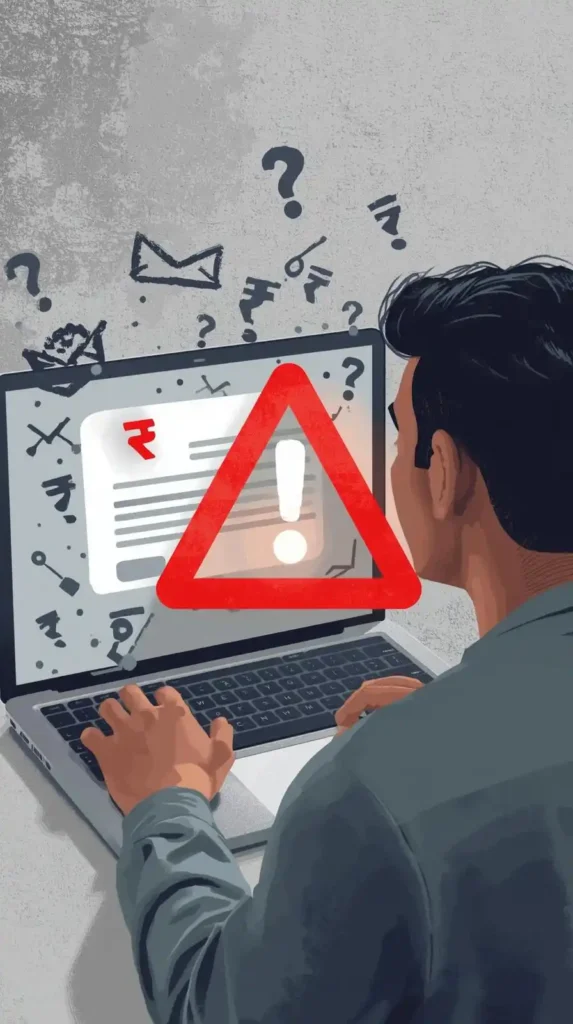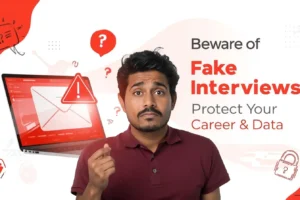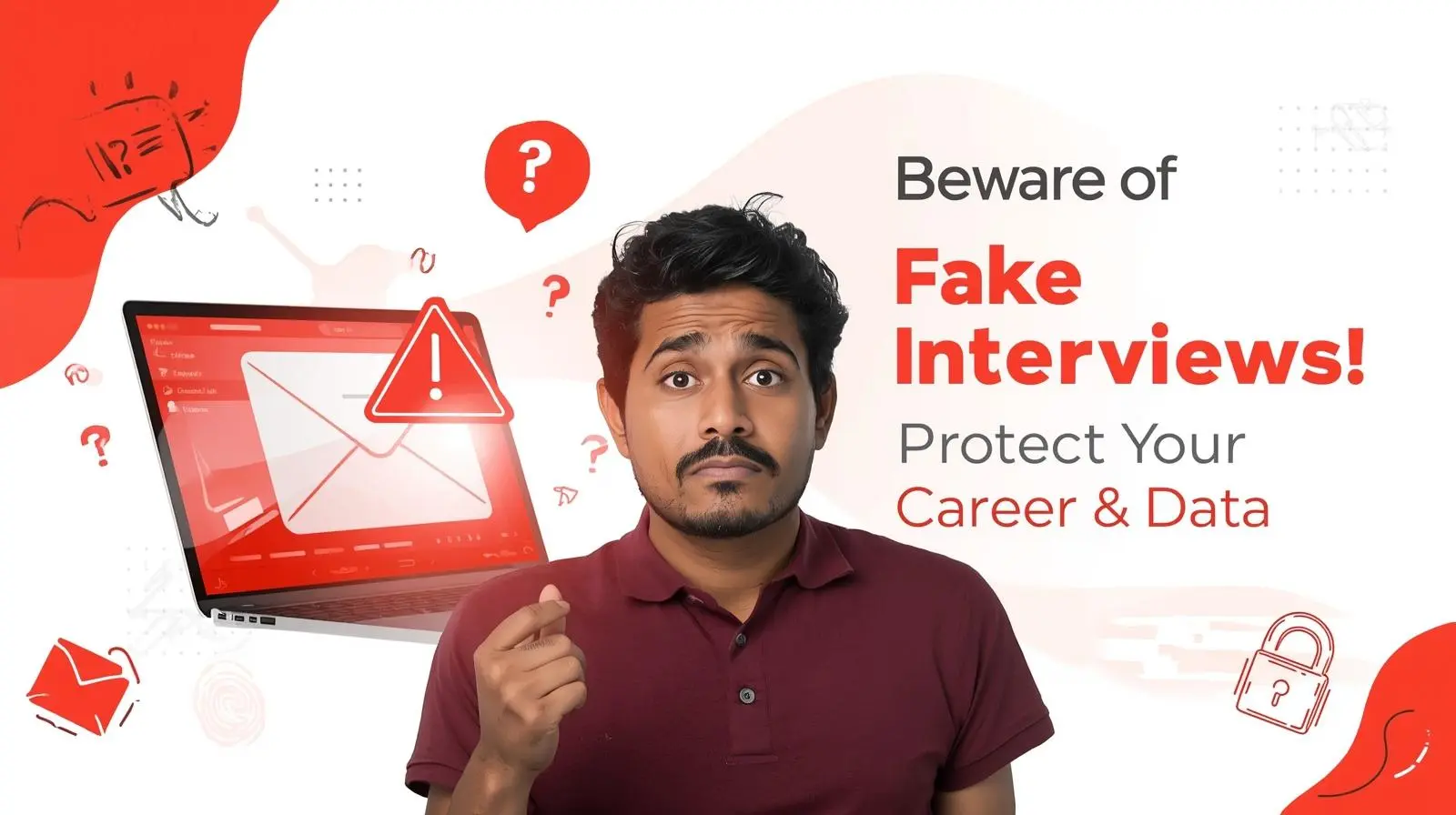As Sri Lanka’s job market grows increasingly digital, job seekers — especially fresh graduates and freelancers — are being targeted by fake recruiters and spam interviews invitations. These scams often appear professional, but their goal is to steal personal data, extract money, or misuse your information.
In recent months, HR communities and law enforcement in Sri Lanka have reported a sharp increase in fake job ads circulating through WhatsApp, LinkedIn, and Facebook, often using names of real companies.
Whether you’re an HR professional, a job seeker, or a company executive, understanding how to identify and avoid spam interviews protects not only your reputation but also your time, data, and talent pool.
1. What Are Spam Interviews?
Spam interviews are fraudulent recruitment attempts designed to mislead candidates into:
- Sharing personal or banking details
- Paying for “registration,” “medical,” or “training” fees
- Submitting CVs for data harvesting
- Participating in fake interviews via unofficial channels
In Sri Lanka, these scams typically mimic the names of well-known apparel, logistics, or IT companies and operate through social media or unverified job portals.
➡️ External Source: Sri Lanka Computer Emergency Readiness Team (CERT)
2. Why They’re Increasing in Sri Lanka
The rise of remote work and online recruitment has created new opportunities — and vulnerabilities.
A 2024 report from the Information and Communication Technology Agency (ICTA) highlighted a 35% rise in online recruitment fraud in Sri Lanka post-pandemic.
Fake recruiters exploit social media channels and messaging apps, offering “too good to be true” positions such as:
- Overseas jobs with no experience required
- Work-from-home data entry positions promising high pay
- Paid internship or training offers that require upfront fees
The lack of centralized job verification systems makes it easier for these scams to thrive.
3. How to Identify a Spam Interview
🚩 1. Unofficial Communication Channels
If you receive a job offer through personal WhatsApp numbers, Telegram, or Gmail accounts, verify the sender.
Legitimate companies use corporate email domains (e.g., hr@companyname.lk).
🚩 2. Upfront Payment Requests
No genuine employer or recruitment agency will ever ask for money during the hiring process.
Avoid “processing fees,” “security deposits,” or “visa charges” unless verified through official embassy channels.
🚩 3. Missing Company Details
Always cross-check company details via:
- Company website (must have HTTPS security)
- Registrar of Companies – Sri Lanka
- LinkedIn company page
If the company doesn’t appear online or the website looks unprofessional, it’s likely fake.
4. Protecting Yourself as a Job Seeker
Here’s how to keep your information — and career — safe:
- Research before applying
- Google the company name + “scam” or “fraud warning.”
- Check for job postings on official career pages or reputed platforms like TopJobs.lk or LinkedIn Jobs.
- Verify interview invitations
- Call the company’s official phone number from its website, not the one in the message.
- Limit what you share
- Avoid sending copies of your NIC, bank passbook, or certificates before a confirmed job offer.
- Trust your instincts
- If it feels off or too fast, step back and verify.
5. What HR Departments Should Do
Recruiters and HR teams also play a key role in combating spam interviews.
To protect their brand and candidates, companies should:
- Publish official recruitment guidelines on their websites and social media.
- Use verified job portals and corporate emails for all communication.
- Educate candidates about fake recruiters misusing the company’s name.
- Report impersonation attempts to the Sri Lanka CERT and Cyber Crimes Division.
For example, Lanka Apparel Manufacturing (Pvt) Ltd added a “Beware of Fake Job Offers” banner on its homepage after multiple social media scams misused its name — reducing fraud attempts by 80%.

“A real opportunity will never ask you to pay for it — stay alert, verify, and protect your future.”
In an era of online recruitment and social media hiring, spam interviews have become the new scam frontier.
Job seekers must be vigilant, and employers must proactively protect their brand and candidates.
By verifying every opportunity, reporting suspicious recruiters, and raising awareness, Sri Lanka’s HR community can stop scammers in their tracks.
Remember — a genuine job offer is built on trust, professionalism, and transparency.
If an offer feels suspicious or too good to be true, it probably is.
Ultimately, a pay slip is not just about money — it’s about mutual accountability in the modern workplace.
6. Impact of Spam Interviews
The consequences go beyond personal inconvenience:
- Data Theft: Fake recruiters can sell data for phishing or identity theft.
- Financial Loss: Candidates lose money to fake processing fees.
- Brand Damage: Companies suffer when scammers use their logos or email IDs.
- Time Wastage: Genuine employers lose access to qualified talent who stop trusting online opportunities.
Sri Lanka’s Telecommunication Regulatory Commission (TRCSL) has also urged users to report suspicious job messages.
7. What to Do If You’re Targeted
If you suspect a spam interview or fake job offer:
- Stop communication immediately.
- Take screenshots of messages and emails.
- Report to:
- Cyber Crimes Division – Sri Lanka Police
- Inform the company being impersonated (if relevant).
Act quickly — early reporting helps authorities shut down fraudulent pages faster.
8. Case Study: Real Example
In 2023, a fake recruitment agency in Colombo posed as Ocean Wear Textiles (Pvt) Ltd, inviting job seekers for “urgent interviews” at a rented office.
Candidates were asked to pay Rs. 2,000 for “medical and ID processing.”
After reports reached the company and CERT, the scammers were arrested — but not before dozens lost money.

Mr. Wajira Fernando
Group Manager - Human Resources
Puwakaramba Group of Company









